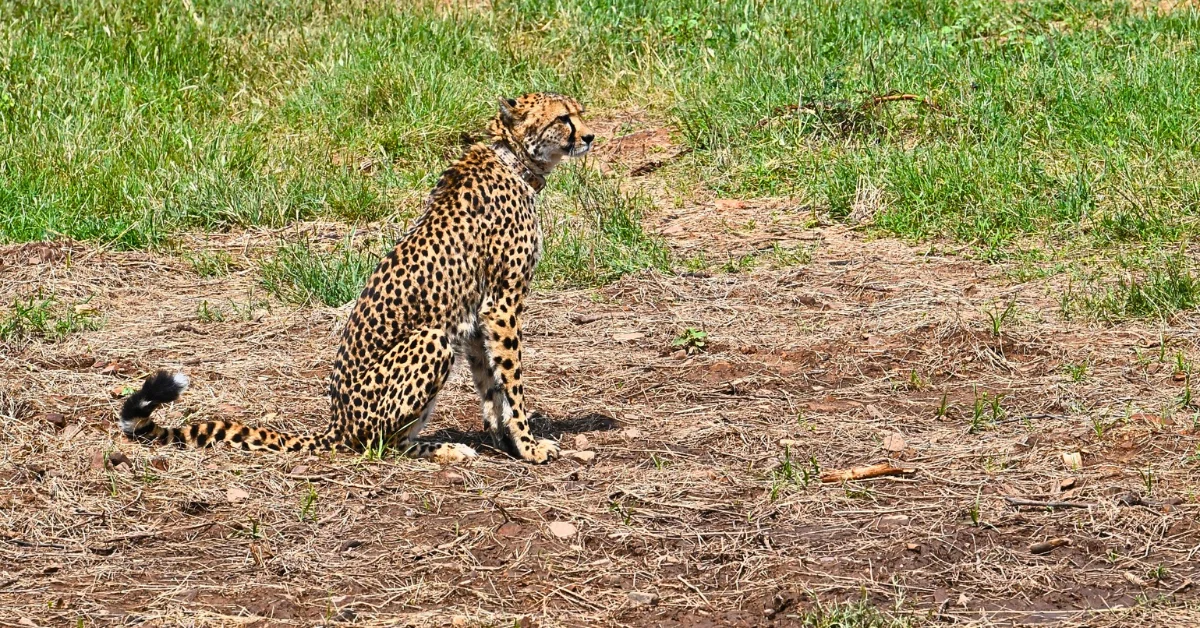
The Supreme Court on Thursday expressed deep concern over the demise of three cheetahs relocated from South Africa and Namibia to Kuno National Park in Madhya Pradesh within less than two months.
The Apex Court urged the Centre to prioritise the well-being of the cheetahs over political considerations and explore the possibility of relocating them to Rajasthan.
ALSO READ | African Cheetah May Soon Become Indian Host
During the proceedings, Justices BR Gavai and Sanjay Karol conveyed to the Centre that expert reports, and articles indicate that Kuno National Park may not be adequately equipped to accommodate such a large number of cheetahs. The Union government should consider relocating them to alternative sanctuaries.
"The deaths of three cheetahs in less than two months is a matter of serious concern. Expert opinions and media articles suggest that Kuno is insufficient for accommodating such a large population of cheetahs. The concentration of cheetahs in one place is excessive. We urge you to explore suitable locations in Rajasthan. The ruling party in Rajasthan should not be a deterrent to considering it," Rediff News reported quoting the court.
Responding on behalf of the Centre, Additional Solicitor General Aishwarya Bhati informed the court that the task force is actively investigating the deaths and considering all possible factors, including relocating the cheetahs to other sanctuaries.
The court was apprised that a female cheetah named Sasha from Namibia died on March 27 due to a kidney ailment, Uday from South Africa passed away on April 23 due to cardio-pulmonary failure, and another South African female cheetah named Daksha died on May 9 following a violent encounter with a male during a mating attempt.
Based on the reports, the bench inferred that one cheetah succumbed to injuries sustained in a fight between two males over mating. At the same time, another died due to kidney-related issues.
Expressing concern, the bench questioned how the female cheetah suffering from a pre-existing ailment was cleared for importation to India. Bhati assured the court that autopsies had been conducted on all the deceased cheetahs, and the task force was actively investigating the matter.
ALSO READ | World's Largest Zoo In Gujarat To Have Cheetahs, Komodo Dragons
The bench acknowledged the positive aspect of bringing cheetahs from abroad. Still, it emphasised the need to protect and provide them with a suitable habitat. It encouraged the Centre to explore more appropriate habitats beyond Kuno National Park.
Bhati highlighted that one cheetah had successfully given birth to four cubs, indicating their adaptation to the Kuno environment.
Justice Gavai, who presides over the apex court's green bench, expressed his deep concern for environmental issues close to his heart.
Bhati acknowledged that cheetah deaths were not unusual but reassured the court that a thorough investigation was underway. She offered to file an additional affidavit with detailed information about the deaths if requested by the court.
The bench clarified that it did not doubt the government's intentions. Still, it stressed the importance of considering the opinions expressed in articles and reports by cheetah experts. It urged the Centre to evaluate the suitability of one or more habitats for the cheetahs.
Justice Gavai advised Bhati not to introduce party politics and urged the Centre to consider all available habitats suitable for the cheetahs. He even expressed his desire for the cheetahs to be brought to Maharashtra.
Bhati mentioned that Mukundara National Park was ready for the cheetahs, and the task force was considering transferring some of them to other national parks in Madhya Pradesh.
Bhati also highlighted that there were no cheetah experts in India due to their extinction in the country in 1947-48. However, Indian officials have undergone specialised training on cheetah management in South Africa and Namibia.
ALSO READ | Cheetah Set To Return To Indian Forests!
The Story Mug, a Guwahati-based blogzine, believes in telling stories that matter.